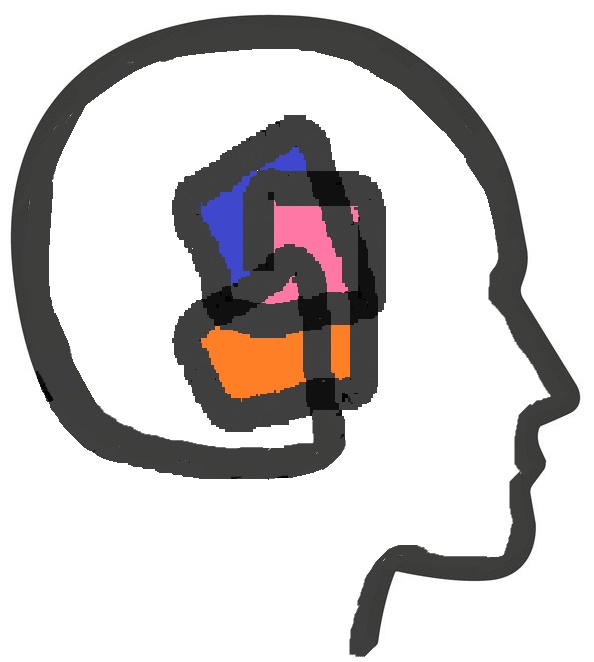
Meniere's Disease
Meniere's disease, otherwise known as Primary Idiopathic Endolymphatic Hydrops, is a vestibular disorder that affects the endolymph fluid, the cochlea and the vestibular apparatus of the inner ear. Although the underlying cause is still unknown, it is believed that there exists an abnormal quantity of endolymph fluid in the inner ear, where the electrolyte composition has been altered. There is such a large and rapid change in fluid pressure gradients between the different chambers of the inner ear, that the membranes of the inner ear may even rupture, where the saccule distends into the horizontal semicircular canal (Paparella; 1984). These fluctuations in fluid pressure trigger acute episodes of Meniere’s, which commonly start off with a feeling of fullness or pressure in the ear, and abnormal pressure in the forehead and eye sockets. What usually follows is a cascade of signs and symptoms including constant and intense vertigo (spinning of room), tinnitus, imbalance, nausea, and vomiting. Typically, Meniere’s attacks last anywhere between four to twelve hours in duration, and their followed by extreme exhaustion and fatigue, as well as progressive and irreversible hearing loss. A patient suffering from Meniere’s disease may experience a cluster of acute episodes, anywhere from six to 11 attacks per year, followed by a remission that may last for long periods of time (Friberg; 1984). The majority of people with Meniere’s disease are between 40 and 60 years old, although younger people may be affected as well. The incidence is estimated to be between 50 and 350 per 100,000 people per year (Watanabe; 1983).
Treatment:
Vestibular physiotherapy treatment places an emphasis on education, informing patients on various coping mechanisms for acute episodes, and lifestyle modifications for the prevention of future attacks. Some coping strategies when experiencing an acute episode include staying motionless in bed and staring at a fixed object, in an attempt to calm the vertiginous symptoms. Some literature has supported the use of acupuncture and traditional Chinese medicine for the treatment of vertigo and dizziness, however this acupuncture has not shown to improve hearing loss (Tong-zheng Hong; 2018). More substantial research has stressed the importance of maintaining stable body fluid and blood levels for Meniere’s disease, as they have an influence on the inner ear fluid. A large body of evidence supports the encouragement of healthy lifestyle practices, limiting excessive caffeine, nicotine, alcohol, salt, sugar (including Aspartame), MSG, or dehydration.
For more information on this topic, a link has been attached to this document through the Vestibular Disorders Association providing further details on dietary and lifestyle guidelines and their influence on Meniere’s disease:
- Burton MJ, James AL. Betahistine for Meniere's disease or syndrome. Cochrane Database Syst Rev. 2001(1):CD001873. doi:10.100214651858.CD001873
- Friberg U, Stahle J, Svedberg A. The natural course of Meniere's disease. Acta Otolaryngologica 1984;406(Suppl):72-7.
- Merchant S, Adams J, Nadol J. Pathophysiology of Meniere’s syndrome: are symptoms caused by endolymphatic hydrops?. Otol Neurotol. 2005 Jan; 26 (1): 74-81. DOI: 10.109700129492-200501000-00013.
- Paparella M. Pathogenesis of Meniere’s disease and Meniere’s syndrome. Acta Otolaryngol Suppl. 1984; 406: 10-25. DOI: 10.310900016488309122996
- Tong-zheng Hong. A Study on Acupuncture Treatment to Meniere’s disease J Complement Med Alt Healthcare. 2018; 7(3): 555715. DOI: 10.19080JCMAH.2018.07.555715004
- Watanabe I. Incidence of Meniere's disease, including some other epidemiological data. In: Oosterveld WJ editor(s). Meniere's Disease: A Comprehensive Appraisal. Chichester: John Wiley and Sons Ltd, 1983:9-23.
All health content provided on ‘The Dizziness Class’ website should not be considered medical advice or a substitute for a consultation with a physician or any other primary health care provider. Our website is neither able to predict nor control unforeseeable circumstances with the information provided on its web pages. Thus, we cannot offer specific medical advice. If you are encountering any medical problem, please contact the appropriate primary health care provider. Please read our disclaimer.